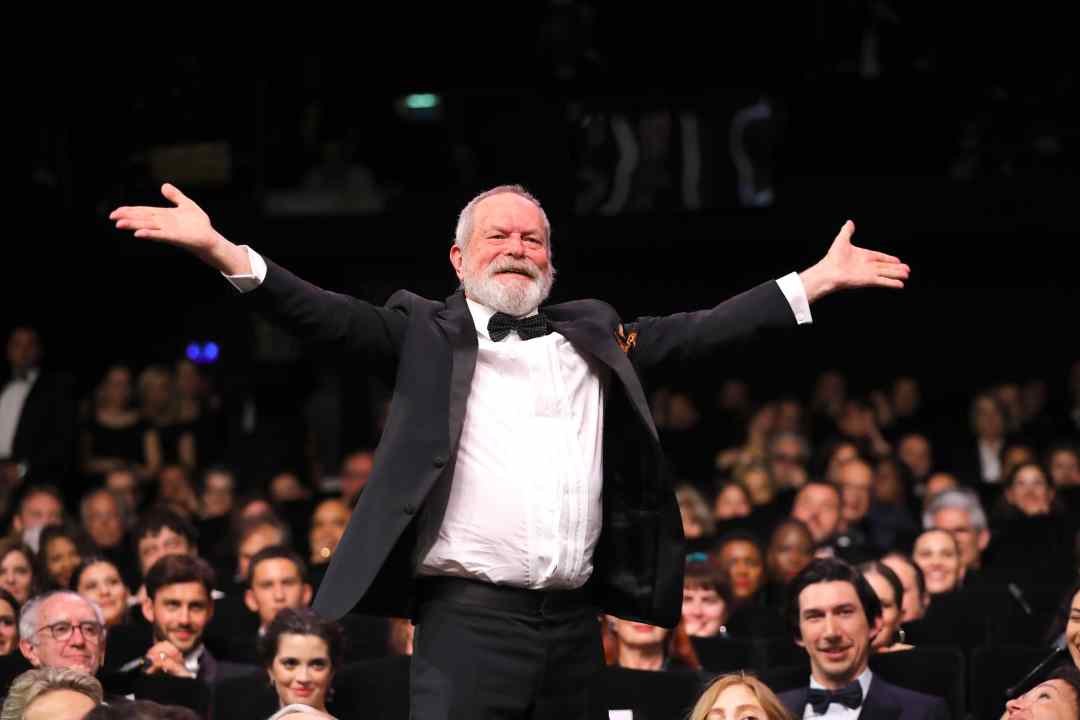I am starting to wonder if the world of arts and culture is staffed, in large part if not exclusively, by massive whinging babies. What other plausible explanation is there for the frequency with which publishing houses, streaming services and theatres are going into open revolt because their employers have commissioned work by someone whose opinions they happen to find disagreeable?
Terry Gilliam is the latest artist in the crosshairs. The Monty Python legend and director was due to co-direct a production of Stephen Sondheim’s Into the Woods at the Old Vic in London next year. Sondheim had expressed support for Gilliam’s vision for the show. But according to reports in the Stage, ‘staff unrest’ about his personal views has led to the show being cancelled.
So, what bigotries and heresies has Gilliam uttered that so upset the staff at the Old Vic? He has said that #MeToo got a bit out of hand — that while he ‘hated’ Harvey Weinstein there were ‘decent people’ who were ‘getting hammered’ by the movement. He has also rubbished the idea of white privilege and had a pop at identity politics, quipping last year (to a clearly unimpressed interviewer for the Independent) that he was a ‘black lesbian in transition’.
If Terry Gilliam can be sacked because someone takes offence to his opinions, then the same could easily happen to someone further down the pecking order
In sum, he has expressed pretty widely held views — that we should punish sexual abusers but avoid witch hunts; and that notions of self-identification and privilege are not just wrong but also quite amusing. That is precisely what you’d expect from an 80-year-old Python. And yet this has apparently so ‘upset’ the staff at the Old Vic that management cannot abide his presence at their theatre next year.
The Old Vic has told the Stage that executive director Kate Varah met members of staff about their concerns and that senior management then met Gilliam and his co-director ‘to discuss our culture and values’, eventually deciding it was best not to go ahead. Any suggestion that this was a commercial decision, perhaps owing to fears of a public backlash, should be dispelled by reports that ‘thousands of tickets’ had already been sold at the time the production was canned.
There are particular sensitivities around #MeToo at the Old Vic due to the case of Kevin Spacey. (During the Hollywood actor’s time as artistic director there a number of allegations of ‘inappropriate behaviour’ were made against him.) But then Gilliam has said nothing about Spacey.
This is clearly part of a broader trend, whereby culture sector workers are now staging protests not over pay or working conditions but over their own hurt feelings.
Just last month Netflix workers staged a walkout over comedian Dave Chappelle’s latest special, The Closer, because in it he makes jokes about transgenderism. Last year, staff at publishing house Hachette, who were working on a new J.K. Rowling childrens’ book, threatened to down tools over her views on gender identity. A few months later at Penguin Random House Canada, tearful staff confronted management over its decision to publish conservative psychologist Jordan Peterson’s latest self help book.
In all those cases, management held out, usually after much apologising for the ‘pain’ they’d somehow inflicted. So the Old Vic’s capitulation suggests the resolve of senior management may be wearing thin, under the intense pressure of their hysterical staff. The notion of artistic freedom, across fiction, comedy and theatre, is facing a serious, internal challenge from staff who seem to think it’s a worker’s right not to be offended.
In this, they are playing a dangerous game. Indeed, if Terry Gilliam can be sacked because someone takes offence to his opinions, then the same could easily happen to someone further down the pecking order who later finds themselves in breach of our ever-changing moral code. These revolts just hand more power to management to police acceptable thought.
Nevertheless, these tearful little Torquemadas appear intent on making a cultural sphere — long criticised for its bias towards metropolitan values — even more narrow and homogeneous. Big institutions that already acted as cultural gatekeepers are now being encouraged to submit all art and artists to a punishing purity test.
It’s time we stood up to this tyranny of overgrown infants.








Comments